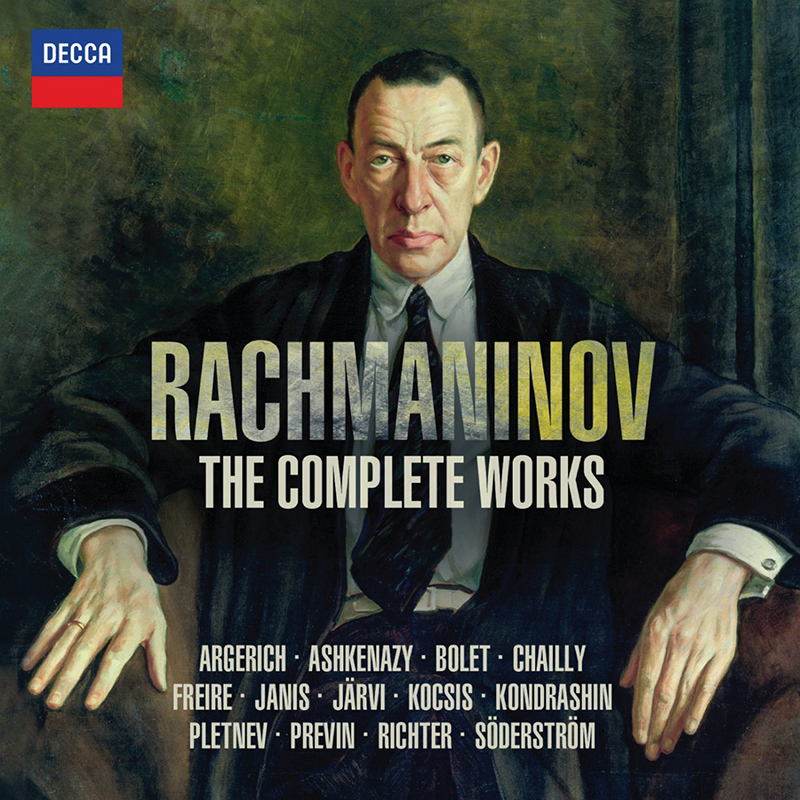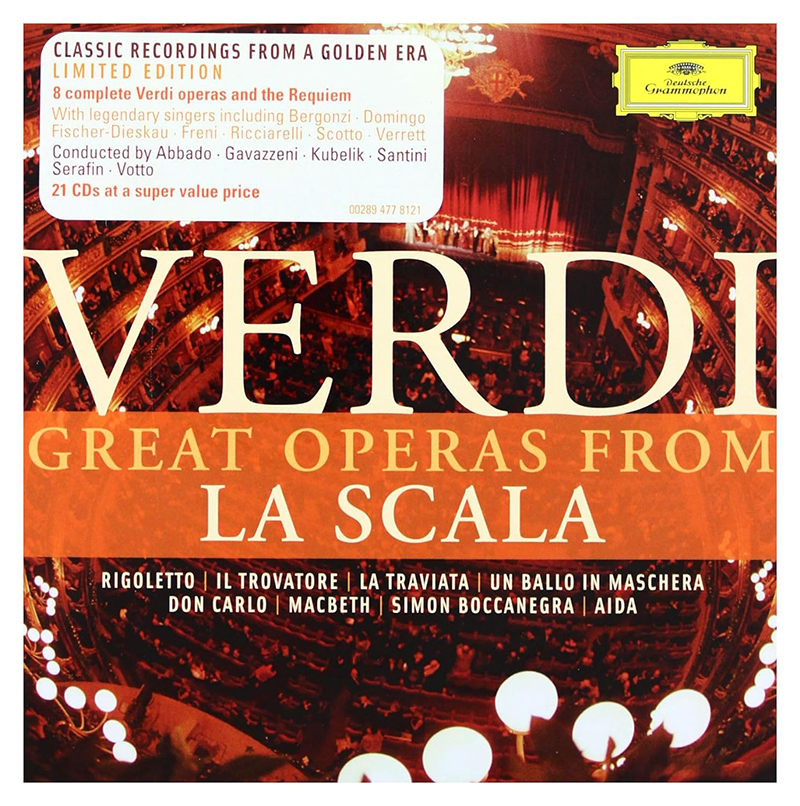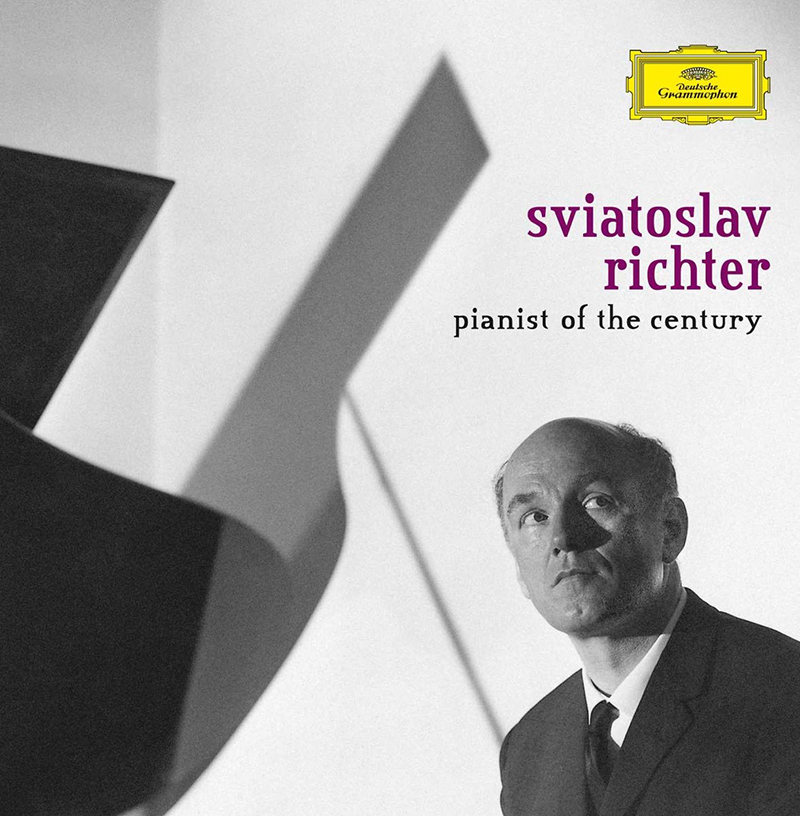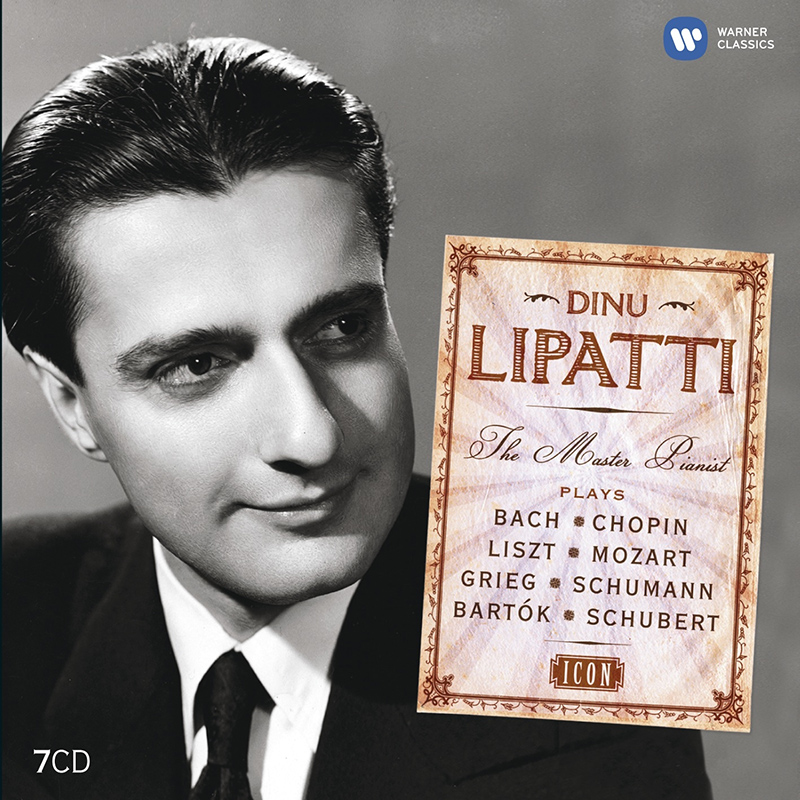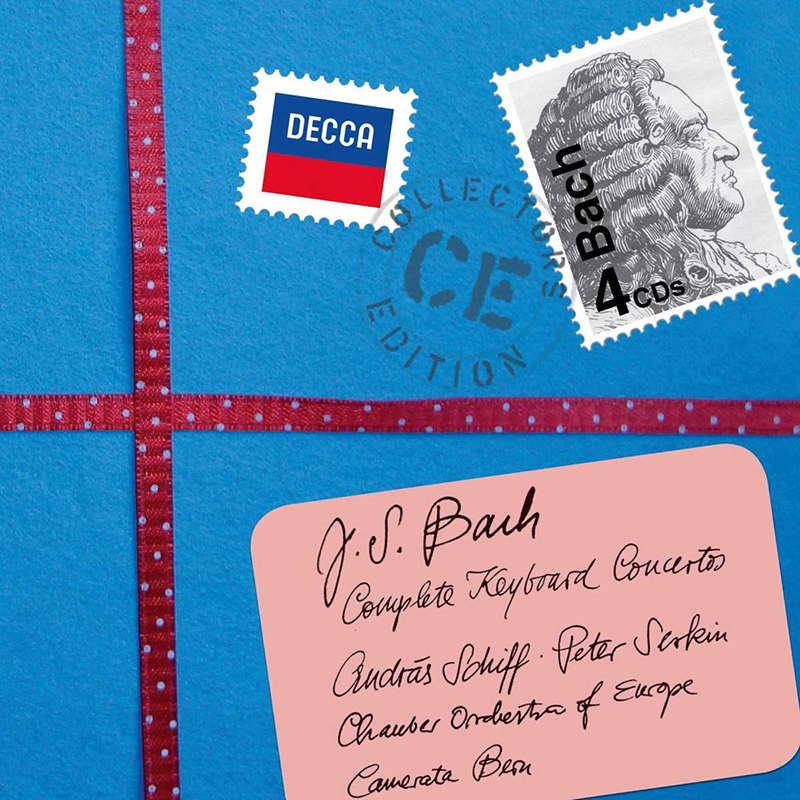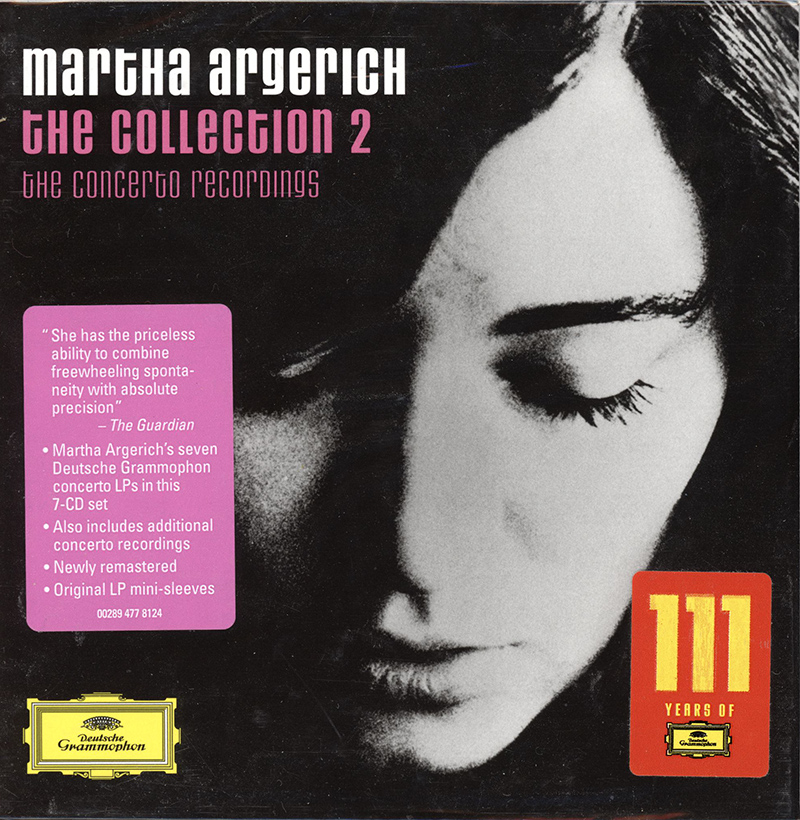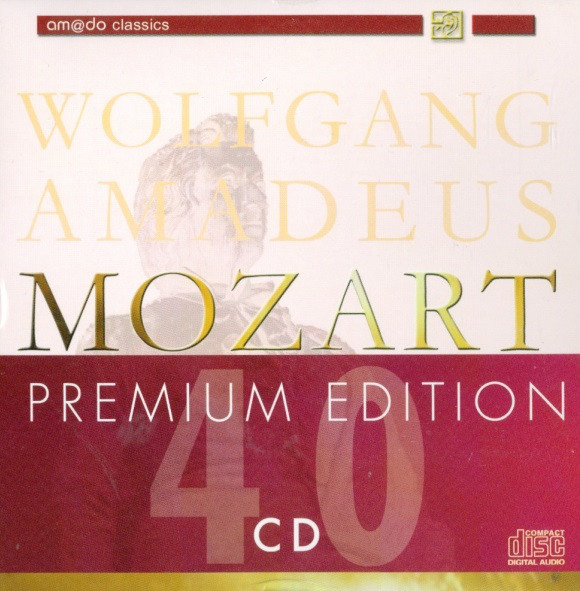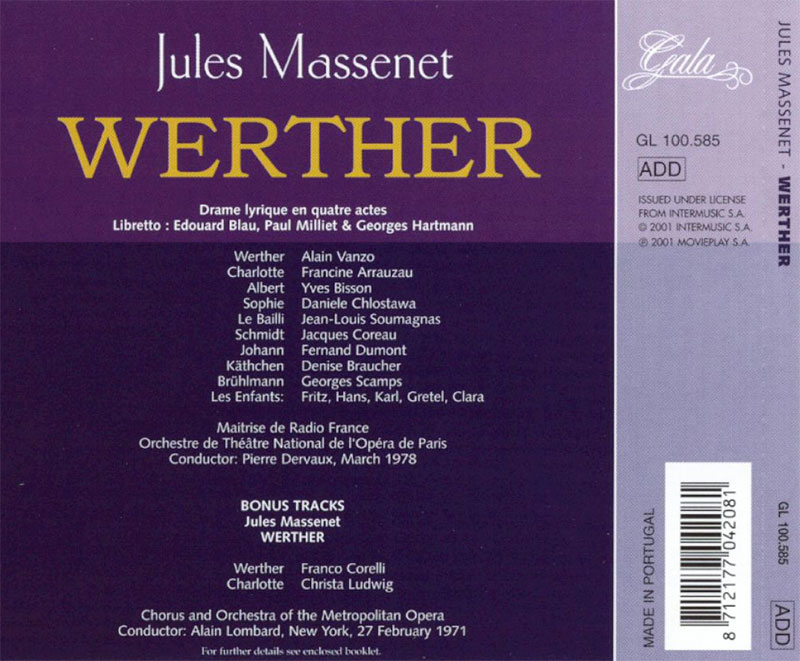Logowanie
KOLEKCJE!
BACH, CHOPIN, LISZT, MOZART, GRIEG, Dinu Lipatti, Otto Ackermann, Ernest Ansermet
The Master Pianist
PROKOFIEV, CHOPIN, TCHAIKOVSKY, SCHUMANN, BEETHOVEN, Martha Argerich, Claudio Abbado, Giuseppe Sinopoli
The Concerto Recordings
The Collection 2
Jakość LABORATORYJNA!
ORFF, Gundula Janowitz, Gerhard Stolze, Dietrich-Fischer Dieskau, Deutsche Oper Berlin, Eugen Jochum
Carmina Burana
ESOTERIC - NUMER JEDEN W ŚWIECIE AUDIOFILII I MELOMANÓW - SACD HYBR
Winylowy niezbędnik
ClearAudio
Essence MC
kumulacja zoptymalizowana: najlepsze z najważniejszych i najważniejsze z najlepszych cech przetworników Clearaudio
Direct-To-Disc
PIAZZOLLA, ChamberJam Europe
Tangos del Ángel y del Diablo
Direct-to-Disc ( D2D ) - Numbered Limited Edition
MASSENET, Alain Vanzo, Francine Arrauzau, Yves Bisson, Orchestre du Theatre National de l'Opera de Paris, Pierre Dervaux
Werther
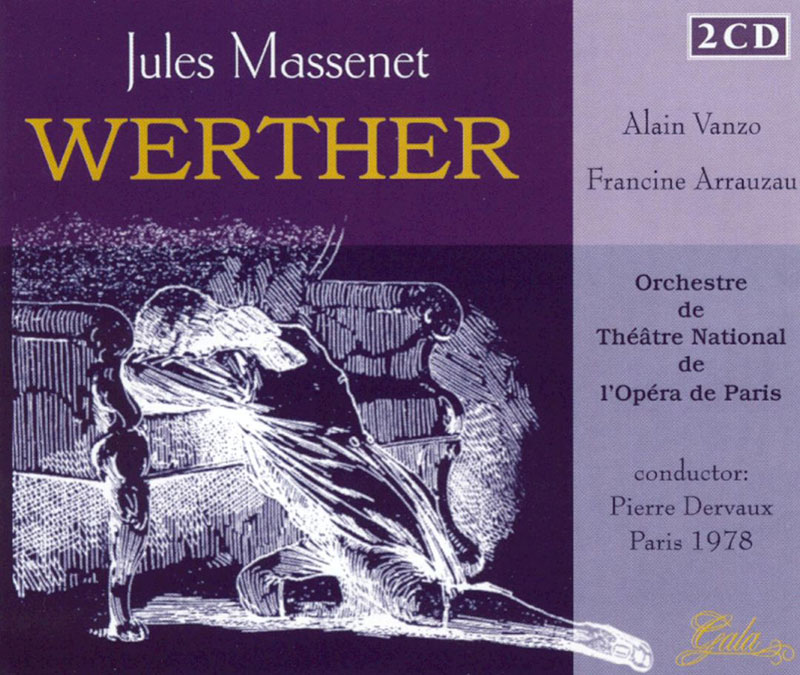
Werther by Jules Massenet Performer: Jean-Louis Soumagnas (Bass Baritone), Jacques Coureau (Tenor), Fernand Dumont (Baritone), Yves Bisson (Baritone), Francine Arrauzau (Alto), Alain Vanzo (Tenor), Denise Braucher (Soprano), Georges Scamps (Tenor), Daniele Chlostawa (Soprano) Conductor: Pierre Dervaux Maîtrise de Radio France, National Theater Opera Orchestra of Paris Date of Recording: 03/1978 Venue: Live Paris, France 2. Werther: Mais vous ne savez rien de moi by Jules Massenet Performer: Christa Ludwig (Mezzo Soprano), Franco Corelli (Tenor) Conductor: Alain Lombard Orchestra/Ensemble: Metropolitan Opera Chorus, Metropolitan Opera Orchestra Notes: This selection is preceded by "Il faut nous séparer" and continues with "Rêve! Extase! Bonheur!" 3. Werther: Werther! Qui m'aurait dit...Des cris joyeux "Letter scene" by Jules Massenet Performer: Christa Ludwig (Mezzo Soprano) Conductor: Alain Lombard Orchestra/Ensemble: Metropolitan Opera Orchestra Date of Recording: 02/27/1971 Venue: Live New York City L. E. Cantrell 5.0 out of 5 stars Well-sung, although very Italianate mono version of "Werther" from 1953 April 10, 2007 SOURCE: Studio recording made in Torino in 1953 for broadcast on Italian Radio (RAI), then issued in 33-rpm record format by CETRA in 1954. SOUND: Pretty good 1950s mono. The digital remastering in 2001 was successful in eliminating the notorious CETRA harshness. As was the custom of the times, the recording gives rather more prominence to the singers than to the orchestra. CAST: Werther, a young, handsome, romantic, suicidal doofus - Ferruccio Tagliavini (tenor) Charlotte, a perfectly ordinary young woman who has the misfortune to attract and to be attracted by the aforesaid doofus - Pia Tassinari (mezzo-soprano) Albert, Charlotte's husband, an apparently bland and undistinguished man who turns out to have a core of granite and a heart of iron - Marcello Cortis (baritone) Sophie, Charlotte's feather-headed younger sister - Vittoria Neviani (soprano) Le Bailli, the Bailiff - Guiliano Ferrein (bass) Schmidt - Tommaso Soley (tenor) Johann - Pier-Luigi Latinucci (baritone) CONDUCTOR: Francesco Molinari-Pradelli with Coro di Voce Bianche e Orchestra Sinfonica di Torino della RAI. TEXT: This performance of the standard performing version then in use, contains a few cuts, none of them especially vital. COMMENTARY: "Werther" is an excellent opera that for some reason is not often offered on stage, at least not here in North America. On the other hand, it has been recorded many times, generally with great success. Even the recent version from Bocelli is not hopeless--not entirely so, anyway. Of all recorded versions of "Werther," by far the best and truest to authentic French performance style is the very first, dating from 1931. It features the great Georges Thill and the ravishing Ninon Vallin. They famously despised one another but, oh, how wonderfully well they performed together! That set represents the very first generation of electronic recording and, alas, sounds like it. (For those daring enough to brave historic sound, Naxos has re-issued a version restored to the limit of current technology.) In 1954, amid the sort-of-high-fidelity-mono era, RAI and the old Italian CETRA Label attempted one of their very rare forays into French repertory with the excellent Ferruccio Tagliavini and his much under-appreciated wife, Pia Tassinari. To my mind, the 1969 recording with Nicolai Gedda and Victoria de los Angeles, while not perfect, still remains the best of the several stereo versions. In writing "The Sorrows of Young Werther," Goethe unwittingly created both a best-seller and a worldwide phenomenon: the self-centered, endlessly needy, suicidal Romantic drip. It all came out of a personal anecdote. Goethe had a friend who had lent his pistol to yet another friend. That friend of the friend had then promptly blown his brains out. In his book, Goethe placed the pistol borrowing in the context of a romantic triangle. He lived long enough to see the international formation of Werther clubs and, worse, a deplorable series of what might be called echo-suicides. This performance is sung in (a marvelously idiosyncratic and Italianate version of) the French language, but its heart and soul remain resolutely Italian. About Ferruccio Tagliavini (1913-1995), let me be precise: for a limited number of years and in a narrow range of roles, he was very nearly a perfect lyric tenor. He had a voice of honeyed sweetness that he used with an elegance almost matching that paragon among graceful tenors, Cesare Valetti. When he chose to use it, he also had an steel core of vocal strength and impressive squillo. Unlike too many of his successors, he understood both the operas and the characters he portrayed. His control was such that each note he sang was in character and uttered precisely as he intended. Among the great tenors, he may be placed in the space between the lighter Tito Schipa and the heavier Beniamino Gigli-not bad company. He remains unmatched as Elvino in "La Sonnambula," Fritz in "L'amico Fritz," Fenton in "Falstaff" and Faust in "Mefistofele." He was formidable in "Rigoletto," "La Favorita" and "Lucia," as well as in "Werther," "Manon" and "The Pearl Fishers"--although he was always more comfortable in Italian. Later in his career, after ill-advised attempts to move into heavier roles, his voice thickened and lost much of its sheen. Pia Tassinari (1903-1995) was a fine singer who happened to be married to Ferruccio Tagliavini. They made a number of recordings together. Throughout most of her career she was a soprano with a particularly good middle range. In the cast list above, I describe her as a mezzo-soprano because the part of Charlotte was written for singers in that voice range. In actual fact, the role lies comfortably within the vocal ranges of both mezzos and sopranos. Singers of both categories have recorded impressive Charlottes. Late in her career, Tassinari's voice darkened to the extent that she took on some of the major mezzo roles. One of her last major recordings has her in the part of Ulrica in Verdi's "Ballo in maschera." Francesco Molinari-Pradelli (1911-1996) made his debut at La Scala in 1946 when it re-opened after the War. He was a fixture on the international opera house circuit and a familiar name from many important operatic recordings. His performing career lasted up to 1995. This highly Italianate take on a French version of a German epic may perhaps be a bit lacking in authenticity but it nevertheless is a finely sung and entertaining performance. That's worth five stars as far as I am concerned. LEC/Am
